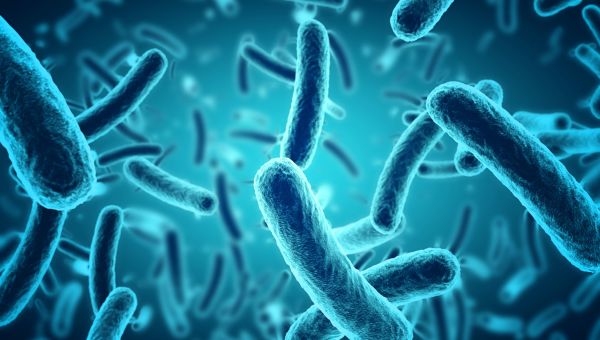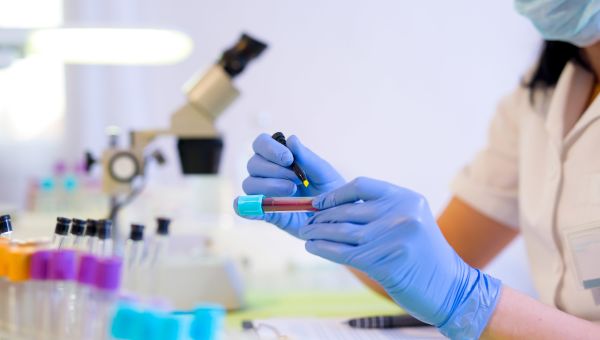6 situations when diarrhea is something to worry about
Annoying? Yep. Cause for concern? It depends. Find out when diarrhea may need medical attention.
Updated on September 14, 2023

You feel that telltale, urgent impulse in your gut that tells you to get to the bathroom quick. It’s diarrhea, and you know you’re in for a long day.
But did you simply eat something that disagreed with you, or is that loose stool a sign of something more serious? Here’s when to see a healthcare provider (HCP) for your diarrhea.

What is diarrhea?
Diarrhea is defined as having at least three watery, loose bowel movements in one day. It signals a problem in either the small intestine—which will secrete too much fluid into waste materials moving through the digestive system—or the colon, which will fail to absorb enough fluid.
It’s most often… Show More
Diarrhea is defined as having at least three watery, loose bowel movements in one day. It signals a problem in either the small intestine—which will secrete too much fluid into waste materials moving through the digestive system—or the colon, which will fail to absorb enough fluid.
It’s most often caused by an unidentified infection that clears up on its own in 24 to 72 hours, says Theresa DiSandro, DO, a gastroenterologist in Cherry Hill, New Jersey. Medications such as antibiotics or the diabetes treatment metformin can also cause diarrhea, she says.
But if diarrhea is not caused by medication and it doesn’t clear up quickly, it’s time to talk to an HCP. Here’s what might be causing it, and what else to look out for.
Show Less
Inflammatory bowel disease
Inflammatory bowel disease (IBD) is a broad description of any condition in which the digestive (or gastrointestinal) tract becomes inflamed. The two most common inflammatory bowel diseases are ulcerative colitis, which affects the rectum and colon, and Crohn’s disease, which can appear… Show More
Inflammatory bowel disease (IBD) is a broad description of any condition in which the digestive (or gastrointestinal) tract becomes inflamed. The two most common inflammatory bowel diseases are ulcerative colitis, which affects the rectum and colon, and Crohn’s disease, which can appear anywhere in the gastrointestinal tract.
Both types of IBD are autoimmune disorders, meaning the body’s immune system mistakenly attacks healthy cells. In addition to diarrhea, other common signs of IBD include abdominal pain, rectal bleeding or blood in the stool, weight loss, and fatigue.
“An inflammatory condition like Crohn’s or ulcerative colitis can worsen, requiring the patient to be hospitalized,” says Dr. DiSandro. There’s no cure for IBD, but symptoms can be managed through dietary changes, stress management techniques, anti-inflammatory drugs, corticosteroids, immune system suppressors, and sometimes surgery (especially in the case of Crohn’s disease).
Show Less
Irritable bowel syndrome
Irritable bowel syndrome (IBS) is not to be confused with IBD. Whereas Crohn’s and ulcerative colitis are autoimmune diseases, researchers aren’t sure what causes IBS. Several factors might be involved, including issues with the nervous system, muscles in the intestine, changes in gut microbes, and… Show More
Irritable bowel syndrome (IBS) is not to be confused with IBD. Whereas Crohn’s and ulcerative colitis are autoimmune diseases, researchers aren’t sure what causes IBS. Several factors might be involved, including issues with the nervous system, muscles in the intestine, changes in gut microbes, and stress in early life.
The symptoms of IBS usually stick around for a long time. They include changes in how frequently you have bowel movements, pain that goes away after a bowel movement, bloating, and white mucus in the stool. People with IBS can have diarrhea, constipation, or both.
Diagnosing IBS is particularly tricky. HCPs typically try to rule out other conditions first. IBS is usually treated by medication and dietary changes. This approach might involve avoiding foods with gluten and those that tend to cause gas and following a special restrictive eating plan called a low-FODMAP diet. Stress and anxiety can make IBS symptoms worse, so mental health treatment is often recommended. Probiotics may help some people as well.
Show Less
Celiac disease
Going gluten-free has become something of a health trend, but for people with celiac disease, it’s an essential treatment.
Celiac disease is a condition that’s caused by an immune reaction in which the immune system attacks the small intestine. It’s triggered by eating gluten, a protein found… Show More
Going gluten-free has become something of a health trend, but for people with celiac disease, it’s an essential treatment.
Celiac disease is a condition that’s caused by an immune reaction in which the immune system attacks the small intestine. It’s triggered by eating gluten, a protein found in grains like wheat, rye, spelt, and barley.
Diarrhea is a common symptom, as are fatigue, weight loss, bloating, abdominal pain, nausea, vomiting, and constipation. Because celiac disease damages the small intestine, people who have it may not be able to absorb nutrients as well as they should. Malabsorption can result in malnutrition, which can in turn cause many non-gastrointestinal symptoms like anemia, low bone density, and itchy skin rashes.
Following a strict gluten-free diet is the primary method of treating celiac disease.
Show Less
Polyps or colon cancer
“If diarrhea is persistent, we worry it might be a presentation of colon polyps or colon cancer,” says DiSandro. Colon polyps are small masses growing on the intestine walls that can either be benign or cancerous.
Certain types of polyps excrete water and salts, which can cause diarrhea and low… Show More
“If diarrhea is persistent, we worry it might be a presentation of colon polyps or colon cancer,” says DiSandro. Colon polyps are small masses growing on the intestine walls that can either be benign or cancerous.
Certain types of polyps excrete water and salts, which can cause diarrhea and low levels of potassium in the blood. A colonoscopy is usually performed to find polyps. If any are found, an HCP will remove the polyps and take a biopsy to determine if they’re cancerous.
Show Less
Clostridioides difficile infection
Clostridioides difficile (C. diff) is a type of bacteria that usually lives uneventfully in people’s intestines. But prolonged and excessive use of antibiotics can alter the balance of bacteria in the gut, causing an overgrowth in C. diff, leading to an infection that may be hard to treat. Symptoms… Show More
Clostridioides difficile (C. diff) is a type of bacteria that usually lives uneventfully in people’s intestines. But prolonged and excessive use of antibiotics can alter the balance of bacteria in the gut, causing an overgrowth in C. diff, leading to an infection that may be hard to treat. Symptoms include diarrhea that lasts more than two days, a new fever, severe pain in the abdomen, and blood in the stool.
“It’s a persistent disease that often doesn’t get cleared and can be aggressive in the elderly and people with weak immune systems,” says DiSandro. To make a diagnosis, gastroenterologists and lab technicians look for signs of C. diff in a stool sample.
Your HCP may prescribe antibiotics to kill C. diff, such as vancomycin or fidaxomicin. Severe C. diff infections can cause bowel swelling and holes in the bowels, both of which are likely to require surgery.
Show Less
Dehydration
Dehydration isn’t a cause of diarrhea, but rather can be caused by it, especially if the diarrhea is severe or lasts longer than a few days (known as chronic diarrhea). Your body loses more fluid and minerals—such as sodium, potassium, magnesium, chloride, and bicarbonate—with diarrhea than it does… Show More
Dehydration isn’t a cause of diarrhea, but rather can be caused by it, especially if the diarrhea is severe or lasts longer than a few days (known as chronic diarrhea). Your body loses more fluid and minerals—such as sodium, potassium, magnesium, chloride, and bicarbonate—with diarrhea than it does with normal stools. If you’re dehydrated, you may feel weak or dizzy. In severe cases, dehydration can cause abnormal heart rhythms.
Make sure to drink plenty of fluid for mild cases of dehydration. If you’re irritable, sleepy, not urinating enough (or if your urine is a very dark yellow), have dry and shriveled skin, are breathing rapidly or have a rapid heartbeat, you may be extremely dehydrated and should head to the hospital for an IV solution with electrolytes.
Show Less
Getting a diagnosis
For cases of diarrhea lasting fewer than four days, it’s usually not necessary to find out what’s causing it. By the time you may start to worry, it’s often gone. “First, we’re looking for a correlation: Can we attribute the diarrhea to a recent meal or a sick family member?” says DiSandro.
For… Show More
For cases of diarrhea lasting fewer than four days, it’s usually not necessary to find out what’s causing it. By the time you may start to worry, it’s often gone. “First, we’re looking for a correlation: Can we attribute the diarrhea to a recent meal or a sick family member?” says DiSandro.
For more persistent cases of diarrhea where an HCP doesn’t know what’s causing it, they will usually want to test blood and stool samples. They’ll be looking for blood in the stool, signs of bacteria or parasites, and sometimes fat, which would point to a malabsorption condition. Once your HCP understands the cause, they’ll be better able to treat or manage the underlying condition.
Show Less
National Institute of Diabetes and Digestive and Kidney Diseases. Definition & Facts for Diarrhea. Page last reviewed November 2016.
National Institute of Diabetes and Digestive and Kidney Diseases. Symptoms & Causes of Diarrhea. Page last reviewed November 2016.
Centers for Disease Control and Prevention. What is inflammatory bowel disease (IBD)? Page last reviewed April 13, 2022.
Mayo Clinic. Inflammatory bowel disease (IBD). Page last reviewed September 3, 2022.
Mayo Clinic. Irritable bowel syndrome. Page last reviewed May 12, 2023.
Mayo Clinic. Celiac disease. Page last reviewed August 10, 2021.
Mayo Clinic. Colon polyps. Page last reviewed March 2, 2023.
Nguyen, Minhhuyen. Polyps of the Colon and Rectum. Merck Manual. Page last reviewed March 2021.
Mayo Clinic. C. difficile infection. Page last reviewed August 27, 2021.
Mayo Clinic. Dehydration. Page last reviewed October 14, 2021.
More On


video

article

slideshow


video


video
